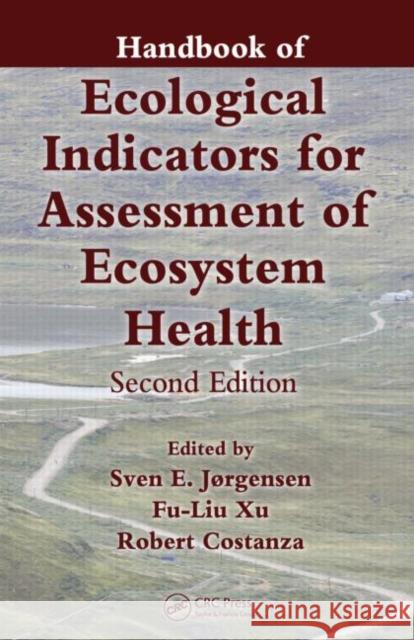Handbook of Ecological Indicators for Assessment of Ecosystem Health » książka
Handbook of Ecological Indicators for Assessment of Ecosystem Health
ISBN-13: 9781439809365 / Angielski / Twarda / 2010 / 498 str.
Handbook of Ecological Indicators for Assessment of Ecosystem Health
ISBN-13: 9781439809365 / Angielski / Twarda / 2010 / 498 str.
(netto: 1093,93 VAT: 5%)
Najniższa cena z 30 dni: 1007,48
ok. 16-18 dni roboczych.
Darmowa dostawa!
Continuing in the tradition of its bestselling predecessor, the Handbook of Ecological Indicators for Assessment of Ecosystem Health, Second Edition brings together world-class editors and contributors who have been at the forefront of ecosystem health assessment research for decades, to provide a sound approach to environmental management and sustainable development. Significantly updated and expanded, this authoritative resource details a proven framework for selecting, evaluating, and validating ecological indicators for ecosystem health assessment. It guides readers through the application of this framework to a wide range of ecosystems, including wetlands, estuaries, coastal zones, lakes, forests, marine ecosystems, lagoons, agricultural systems, landscapes, and rivers. The text synthesizes material from a variety of books, journals, and private research, to consider biodiversity, energy needs, ecological economics, and natural capital in the measurement of ecological health. Organized for ease of reference, the first part of the handbook provides the required theoretical background. It presents a complete overview of all relevant ecological indicators-including thermodynamics, resilience estimates, exergy, and emergy indicators. The second part focuses on how to effectively apply the ecological indicators to a number of important ecosystems. It includes many examples and case studies that clearly illustrate the advantages and disadvantages of each method for specific applications. Offering first-hand insight and practical guidance from practitioners in the field, this complete resource supplies the tools and the well-rounded understanding required to diagnose the health of virtually any ecosystem with much improved accuracy.
The field of ecosystem health explores the interactions between natural systems, human health, and social organization. As decision makers require a sound, modular approach to environmental management and sustainable development, ecosystem health assessment indicators are increasingly used across any number of applications. The Handbook of Ecological Indicators for Assessment of Ecosystem Health provides a comprehensive account and guidebook to ecological indicators for evaluating the health of a wide variety of ecosystems.
The book presents a conceptual framework for selecting, evaluating, and validating ecological indicators of ecosystem health, such as thermodynamics, resilience estimates, exergy, and emergy indicators. This framework is applied in a series of chapters on major ecosystem types, including coastal areas, forests, wetlands, fisheries, and agricultural land. The authors take into account biodiversity, energy needs, ecological economics, and natural capital in their measurement of ecological health. Using material synthesized from a variety of books, journals, and private research, the book presents first-hand accounts of the indicators, used in several different types of ecosystems. Case studies highlight the advantages and disadvantages of each method as well.
The Handbook of Ecological Indicators for Assessment of Ecosystem Health explains what is needed to apply the methods and indicators, including theoretical background and modeling techniques, to evaluate the state of a given ecosystem. It will be useful for a wide range of environmental managers, natural resource managers, land use planners, and policy makers in government and non-governmental organizations worldwide.











